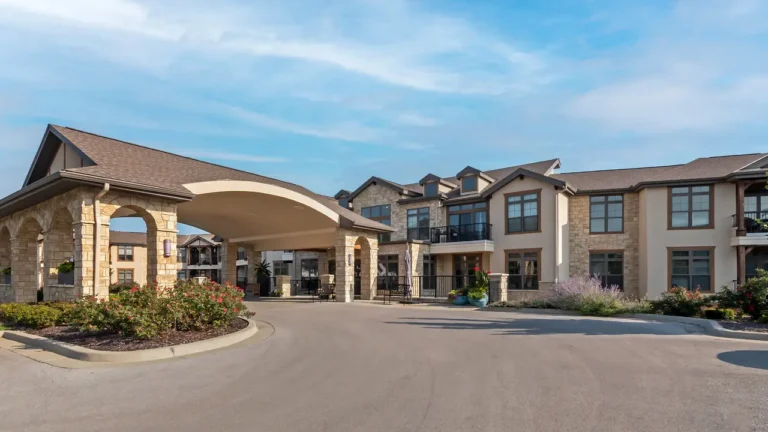It is an exciting time in life when retirement is approaching. There are new hobbies to explore and there will be more time to spend with family and friends. However, many people begin to worry about money as retirement gets closer. How much money is needed to retire comfortably? How long does money last after retirement?
It is important to take steps early to prepare for a financially stable retirement. Planning ahead can help secure a safe and secure retirement and ensure the years following retirement are filled with fun and enjoyment.
Establish a Retirement Savings
Creating a plan to save for retirement is not as complicated as it sounds. And, no matter what the goals of the plan are, starting early is a great way to set the plan up for success. However, even if retirement is approaching and there is no plan in place, it is never too late to start!
Here are some suggestions for putting the best, most personalized retirement savings strategy in place:
Use a Retirement Calculator
After saving for years or at the beginning of the saving journey, it can be worrying to not know how much money is needed for retirement. Financial experts advise people approaching retirement to have at least 80% of their pre-retirement income in order to sustain their current lifestyle. The average Social Security benefit for retired Americans in 2023 is $1,827 per month. This means, if you need more than that amount to pay for your lifestyle, you will need to build your retirement savings on your own.
The first step to knowing how much you need to save for retirement is to check out a retirement calculator, like the one provided by AARP. Using a retirement calculator is a simple way to evaluate anyone’s current financial situation and to help plan for future savings.
Establish a Money Management Plan
A money management and healthy living plan will help to keep spending on track and to make saving a priority. Here are some tips for creating a personalized plan:
- Look for ways to lower fixed expenses. Don’t use your car very often due to convenient public transportation? Sell it and save the money you’re spending on car payments and insurance. Own a home? Downsize to a smaller home to save on mortgage payments, insurance or utilities. Moving to a senior community, like Tutera Senior Living & Health Care, with established monthly costs can also help streamline budgeting.
- Don’t retire too soon! It might be tempting to drop the nine-to-five routine after turning 62, but even postponing the start of retirement to age 66 can help increase annual standard of living by up to 33%. Consider working part-time for a few more years, instead.
- Follow the 4% rule, which advises taking no more than 4% of your savings during your first year of retirement.
- Make smart investments and spending choices. Wondering what is the best investment for a retired person? Look into guaranteed income through immediate annuities, as well as investment options like tax-free bonds or mutual funds. Also, be mindful of risk when making investments at an older age.
- Make healthy choices. Avoid expensive medical costs by scheduling annual preventative health checks and by making smart choices, like eating a healthy diet and continuing to exercise.
Pay Attention to Tax Planning
Tax planning is important every year, before and after retirement. There are many aspects of tax preparation that uniquely impact seniors. For example, for seniors who are on Medicare, or plan to start utilizing Medicare within the next two years, going even $1 over the income threshold could mean hundreds of dollars in additional premiums, through their income-related monthly adjustment amount (IRMAA). Effective tax planning can help avoid these financial potholes, as well as help identify the right choices about what account to pull money from and when, how to manage minimum distributions, how to plan for health care expenses, how to best diversify financial portfolios and how to manage Social Security taxation.
Maximize Social Security Benefits
Social Security and Supplemental Security Income (SSI) benefits for approximately 70 million Americans are increasing by 8.7% in 2023. The 8.7% cost-of-living adjustment (COLA) began in January 2023 for nearly 65 million Social Security beneficiaries, while increased payments to more than seven million SSI beneficiaries began in December 2022. The maximum amount of earnings subject to the Social Security tax (taxable maximum) will increase to $160,200.
Seniors can begin receiving Social Security retirement benefits as early as age 62. Seniors are entitled to full benefits upon reaching full retirement age; however, if a person delays taking benefits from full retirement age up to age 70, their benefit amount will increase. If you start receiving benefits early, your benefits are reduced a small percent for each month before your full retirement age.
There are also aspects of Social Security benefits to consider based on if a senior is still working or has retired. The earnings limit for workers who are younger than “full” retirement age will increase to $21,240. The earnings limit for seniors reaching their “full” retirement age in 2023 will increase to $56,520. There is no limit on earnings for workers who are “full” retirement age or older for the entire year.
Consider Long-Term Care Insurance
Long-term care is defined as care that lasts longer than three months. A long-term care insurance policy will help to cover the costs of care for disabilities, memory disorders, chronic medical conditions and other issues that impact daily life. Many policies will also reimburse policy holders if they receive care in places like an assisted living facility, an adult day care center or a nursing home. This care is not covered by traditional health insurance and can become a huge financial burden. Long-term care insurance also covers things like adult day care services, in-home care, home modifications and care coordination. For many seniors, it allows them to protect their money while addressing their care needs during difficult times.
Smart Money Management After Retirement
While enjoying retirement, it is still important to keep finances and money management on track. Following an established retirement spending plan can ensure there is money for fun and entertainment, as well as covering daily needs. Here are some ways to continue smart money management after retirement:
Take Advantage of Senior Discounts at Age 55
Discounts and benefits for seniors can help stretch retirement dollars in many ways and in many places. Knowing what is available can help retirees plan their monthly budgets and spend money more efficiently and effectively. Here are a few things to keep in mind when it comes to finding discounts for seniors:
- Senior discounts can save real money – in some cases up to 80% off the standard price of goods or services, including prescription drugs, travel, groceries, movie tickets and restaurant meals.
- Some senior discounts require a membership or proof of identification and age.
- While some senior discounts begin at age 50, it is more common for the benefits to kick in between age 55 and 65.
- Do not be afraid to inquire if a business offers discounts for seniors!
Factor in Unexpected Expenses
Even during the golden years, life can throw costly curveballs. No matter if it is an unexpected medical expense, a family member in need of help or an investment gone wrong, it is important to have a financial plan for rainy days during retirement. However, there is no reason a surprise expense should derail a strong, responsible financial plan. Here are three ways to be prepared for unforeseen costs:
- Maintain a cash reserve.
- Keep financial documents and records accessible and organized.
- Meet regularly with a financial advisor.
Understand Medicare/Medicaid
Medicare is the primary medical coverage provider for seniors and those with a disability. Medicaid is designed for people with limited income. Adults age 65 or older, who meet the limited-income requirements, may be covered by both programs. Understanding both Medicare and Medicaid can help seniors determine if they are eligible and identify how these government programs could assist them in saving money and living a longer, more independent life.
For seniors, Medicare’s benefits are limited. Medicare does not pay for personal care and will only pay for a limited number of skilled nursing days following a hospitalization — no more than 100 days for a minimum of 3 days. Medicare will also pay for some home health care, provided it is medical in nature. In recent years, some Medicare Advantage plans started offering long-term care benefits. These services and supports are plan-specific, however they may include:
- Adult day care
- Respite care
- Home modifications
- Personal care assistance
- Meal delivery
- Light housekeeping
Medicaid, which is a state-run program, has different benefits in each state. Generally speaking, Medicaid pays for nursing home care. Through home- and community-based services waiver programs it may also help seniors save on or may help pay for:
- Home care
- Personal care
- Personal emergency response systems
- Homemaker services (laundry, housekeeping, shopping for groceries and preparation of meals)
- Home delivered meals
- Services and supports in assisted living and adult foster care
Medicaid programs may also go by different names in each state.
Plan for long-term care
It is best to plan early for long-term care. However, much like financial planning, any time is a great time to start. Even after retirement, seniors can create a plan that includes their wishes for living decisions, medical decisions and financial investments. For many seniors, making a plan for when to move to an assisted living or memory care community, or for a stay in long-term skilled nursing care, are key parts of long-term care planning.
Senior communities, like those established by Tutera Senior Living & Health Care, can help seniors find the best options for their budget and care needs. With multiple levels of care and diverse services, Tutera allows seniors to streamline their monthly spending into one convenient payment. In addition to covering living expenses, lawn care, laundry services and home maintenance, the monthly cost associated with living in a Tutera community includes:
- Transportation services
- On-site dining
- On-site health care and personal care services
- On-site fitness and wellness programs
- On-site entertainment
- Music and art programs
Retiring with Tutera Senior Living & Health Care
Looking to establish a carefree lifestyle for your retirement? Look no further than Tutera Senior Living & Health Care in your search for a senior living community. Tutera Senior Living is a respected, multistate system of communities delivering healthy living choices and clinical services to thousands of seniors and their families. We offer numerous senior living communities with options for independent living, assisted living, memory care, rehabilitation and extended stay, respite programs and home health care.
At Tutera communities, we get to know our residents individually. Through our YOUNITE survey, we learn as much information as we can about each resident so that we are able to personalize their care and ensure their needs are met in a style that suits them. Our vision is to live the YOUNITE philosophy in every decision, every day. YOUNITE is about getting to know our residents and team members on a personal level – using their unique preferences and personalities to guide our actions. Our vision is clear in the way we live our values each and every day:
- Integrity
- Respect
- Positivity
- Hospitality
Plan for your retirement today. Contact us to learn more about what Tutera can offer you or your loved ones.







